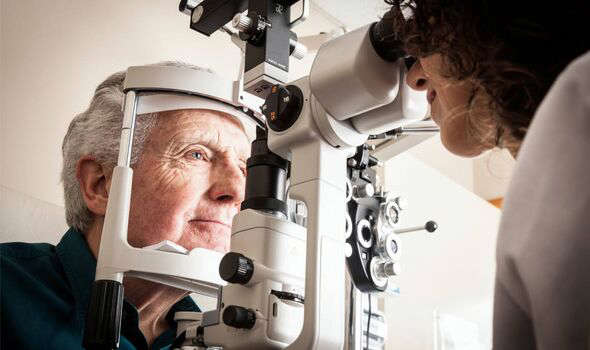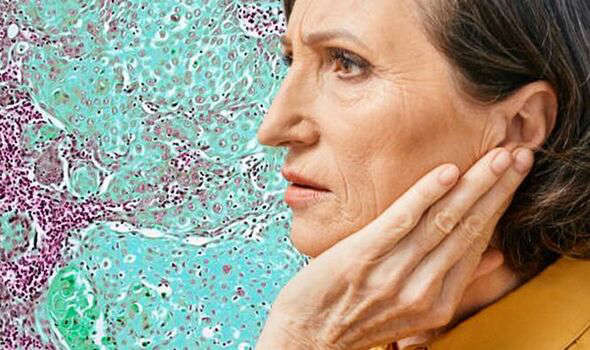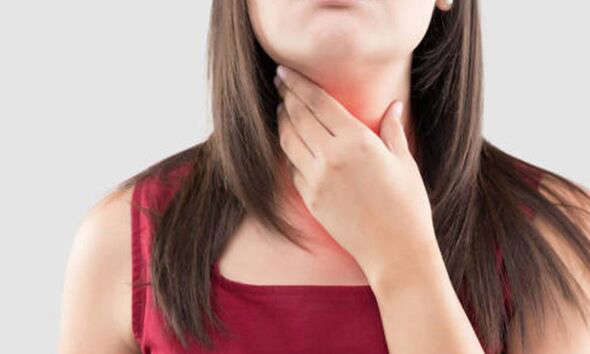New drug saves cataract sufferers from surgery














New drug saves cataract sufferers from surgery
Cataracts, which develop when the transparent lens in the eye becomes cloudy with patches of protein, currently account for almost half of global cases of blindness.
In the developed world, surgery is common and most patients leave hospital after 40 minutes.
But in poorer countries, cataracts often go untreated due to various factors such as cost and lack of access to trained doctors, leaving millions to suffer eventual sight loss.
Now a team of international scientists says they can change this by giving patients an anti-cataract drug compound instead.
Researchers, led by Professor Barbara Pierscionek at Anglia Ruskin University in East Anglia, have carried out advanced tests on the drug.
And today they report that the medicine - known by the scientific community as oxysterol compound VP1-001 and developed by a separate team of experts - restores focus in the lens of around half the laboratory mice it has been tested on.
The next step is for the drug to be trialled on humans. It is not known if the medication will be given via eye drops or in a tablet form.
GETTY Exciting... Drug treatment could put an end to surgery for cataracts
Prof Pierscionek, deputy dean in the faculty of health, education, medicine and social care at the university, told the Daily Express: "It is far better to be using medications to treat a condition rather than invasive surgery, so developing drugs that affect cataracts are an exciting development.
"Cataract treatment in the developed world is very advanced but not so in the developing world, where millions suffer blindness.
"We are now understanding cataracts right down to the different proteins involved and that's very exciting. And they are different, so we need to look at cataracts as a family rather than all being the same."
She added: "Cataracts are one of the main causes of vision loss and blindness worldwide, yet for many people surgery is inaccessible for various reasons. This study has shown the positive effects of a compound that had been proposed as an anti-cataract drug but never before tested on the optics of the lens."
Professor Pierscionek's team have also found that a protein called aquaporin, responsible for the passage of water in the lens, may disrupt optical development and lead to cataract formation.
She said: "This is the first research of this kind in the world.
"It has shown that there is a remarkable difference and improvement in optics between eyes with the same type of cataract that were treated with the compound compared to those that were not. Improvements occurred in some types of cataracts but not in all, indicating that this may be a treatment for specific cataracts.
"This suggests distinctions may need to be made between cataract types when developing anti-cataract medications."
The problem, which develops over time, is caused by an accumulation of protein in the lens, reducing the transmission of light to the retina.
At the moment, cataracts can only be treated by a surgical procedure to remove the cloudy lens and insert an artificial replacement.
In the UK, cataract operations are the most frequently performed surgical procedure.
On average, 450,000 cataract procedures are undertaken in this country every year.
It is estimated that 30 per cent of people 65 years or older have a visually impairing cataract in one or both eyes - and that 10 per cent of people in this age group have already had cataract surgery.
The procedure has an almost 100 per cent success rate and is quick, painless and does not need the patient to have a general anaesthetic.
Around 95 per cent of cataract surgeries are carried out using local anaesthetic and are completed within just 10 minutes.
In most cases after the operation, the patient will leave the hospital within 40 minutes or so of their procedure being completed.
They will usually be completely recovered within two to six weeks afterwards.
The surgery demands a high level of micro-surgical skill but is one of the most successful in modern medicine, with increasingly higher patient and surgeon outcome expectations.
The findings of the latest research are published in the journal Investigative Ophthalmology and Visual Science.
Reference: Daily Express: Cliff Riches
Wire cutters and drill bits among the items left inside NHS patients














Wire cutters and drill bits among the items left inside NHS patients
"Never events" is the name given to things so serious that they should never happen - but in the NHS in England, there were 407 of them in a year.
Other File pic
Never Events are "serious, largely preventable patient safety incidents that should not occur if healthcare providers have implemented existing national guidance or safety recommendations".
Between April 2021 and March 2022, there were nearly eight of these events every week - up from the seven-per-week seen the previous year, according to figures analysed by the PA news agency.
Among the 407 events, there were 98 cases of a foreign object being left inside a patient by mistake - vaginal swabs were left in patients 32 times and surgical swabs were left 21 times.
Other items included a pair of wire cutters, part of a scalpel blade, and the bolt from surgical forceps.
There were three occasions when part of a drill bit was left inside a patient.
Also, there were 171 cases of surgery being done on the wrong body parts - one woman had her ovaries removed by mistake, six patients had injections to the wrong eye.
The wrong hip implant was done 12 times, a wrong knee implant was done 11 times, and patients were connected to air instead of oxygen 13 times.
Seven people received the wrong blood type in a transfusion and one patient had a breast procedure they had not consented to.
A further 29 cases fell under the "serious incidents" category and are being investigated, so may yet be re-classified as "never events".
"Serious physical and psychological impact on patients"
Manchester University NHS Foundation Trust reported 11 errors; Nottingham University Hospitals NHS Trust and Sandwell and West Birmingham University Hospitals NHS Trust both reported 10; Gloucestershire Hospitals NHS Foundation Trust, Liverpool University Hospitals NHS Foundation Trust and University Hospitals of Leicester NHS Trust, and Worcestershire Acute Hospitals NHS Trust, all reported nine.
An NHS spokesperson said: "While these events are extremely rare, and NHS staff are working hard to provide safe care to patients, it is important that events are reported and learned from so that they can be prevented in the future."
A Department of Health and Social Care spokesperson said: "Patient safety is a top priority for the government and these unfortunate events - although very rare - can have a serious physical and psychological impact on patients.
"We are implementing the NHS Patient Safety Strategy which is designed to support staff to provide safe care and learn lessons.
"There are record numbers of nurses, doctors and overall staff working in the NHS, and we have set out our plan to tackle the COVID backlog, backed by record investment."
Reference : Sky News:
Five natural ways to help treat hay fever













Five natural ways to help treat hay fever
Hay fever is one of the most common allergies.
Provided by Cover Media
And as anyone who suffers from the condition - especially in the spring and summer months - will know, it can be highly disruptive to daily activities.
But following the news that stocks of chlorphenamine maleate, the active ingredient in many products available in chemists, are in low supply in the U.K., it is a good time to familiarise yourself with other natural alternatives.
Read on for a round-up of five options recommended by Dr Earim Chaudry, medical director of the men's health platform Manual (manual.co).
Vitamin C
Most of us have oranges or lemon sitting in our fruit bowl, so fruits packed with vitamin C are a good place to start.
"Vitamin C is an effective home remedy for hay fever," he said. "Known as a natural antihistamine, it can be found in lemons, grapefruits and oranges. Oranges are a particularly good source of vitamin C, and whilst the daily recommendation of vitamin C is 1,000mg a day, oranges have an impressive 69.7 mg."
Bioflavonoids
In addition to vitamin C, consider adding foods high in bioflavonoids to your diet.
"Some foods high in bioflavonoids include berries, onions and dark chocolate," noted Dr Chaudry. "Alongside vitamin c are bioflavonoids, which also have powerful anti-allergy effects. The combination of the two together will provide a natural decongestant for the body, helping alleviate symptoms."
Onions
While eating raw onion will give you terrible breath, there are ways to incorporate the vegetable into your meals and help with your hay fever.
"Onions alone are also a good source of quercetin, which is a natural antihistamine and anti-inflammatory proven to reduce symptoms in hay fever sufferers. Containing a significant amount of quercetin, they can be eaten in small amounts throughout the day in a variety of meals," the expert explained.
Chamomile tea
Not only good for helping you relax in the evening, chamomile tea can also help cool red or swollen eyes.
"Containing flavonoids, you can either ingest as a normal cup of tea or as an eye compress. Remember to use a fresh compress for each eye to avoid infection," said Dr Chaudry. "One remedy many people may not be aware of is carotenoids, which are naturally occurring pigments in plants which act as powerful antioxidants to help reduce inflammation in your airways and improve your immune system. Carotenoids can be found in foods such as carrots, apricots, pumpkin, sweet potato and spinach."
Honey
To combat hay fever symptoms, consider adding a spoonful of honey to your breakfast or tea each morning.
"Honey is also a proven remedy because the bee pollen in honey can help desensitise your body to other pollens. Increasing honey in your daily intake should help reduce hay fever symptoms and ideally you should do this before hay fever season starts," he added.
Reference: Cover News:
Mouth cancer symptoms: Are you experiencing ear pain? Check with your GP












Mouth cancer symptoms: Are you experiencing ear pain? Check with your GP
The Mayo Clinic explains: "Cancer that occurs on the inside of the mouth is sometimes called oral cancer or oral cavity cancer. Mouth cancer is one of several types of cancers grouped in a category called head and neck cancers. Mouth cancer and other head and neck cancers are often treated similarly." Cancer Research UK says pain in your ear that does not get better in a few days is a possible sign of mouth cancer.
As well as possible ear pain, the Mayo Clinic says signs and symptoms of mouth cancer may include:
- A lip or mouth sore that doesn't heal
- A white or reddish patch on the inside of your mouth
- Loose teeth
- A growth or lump inside your mouth
- Mouth pain
- Difficult or painful swallowing
The Mouth Cancer Foundation warns that the majority of deaths from mouth cancer occur because of late detection, due to a low public awareness of the signs, symptoms, and risks.
GETTY ear pain
Cancer Research UK says you should see your doctor if you have:
- An ulcer in your mouth that will not heal
- Pain or discomfort in the mouth that will not go away
- Symptoms that are unusual for you
- Symptoms that don't go away
"Your symptoms are unlikely to be cancer but it is important to get them checked by a doctor," it says.
The charity notes advanced cancer is cancer that started in the mouth or oropharynx and has spread to another part of the body.
Cancer Research UK says that if you go to see your GP, they will ask you about your symptoms and they might examine you. They may arrange tests or a referral to a specialist.
The NHS says if mouth cancer is diagnosed early, a complete cure is often possible in up to nine in 10 cases using surgery alone.
If the cancer is larger, there's still a good chance of a cure, but surgery should be followed by radiotherapy or a combination of radiotherapy and chemotherapy.
"Overall, around six in 10 people with mouth cancer will live for at least five years after their diagnosis, and many will live much longer without the cancer returning," says the health body.
You are at increased risk of developing mouth cancer if you smoke or are using tobacco in other ways, such as chewing tobacco.
As well as smoking there are several other risk factors.
The Mouth Cancer Foundation says these include drinking alcohol to excess, which can increase risks fourfold, and having HPV.
GETTY SORE THROAT
The NHS says: "Men are more likely to get mouth cancer than women. This may be because, on average, men tend to drink more alcohol than women."
The NHS recommends you drink no more than 14 units of alcohol a week. If you drink as much as 14 units a week, it's best to spread it evenly over three or more days.
The Mouth Cancer foundation says 25 percent of mouth cancer cases have no associated significant risk factors.
It says: "Mouth and throat cancer can grow and spread very quickly so it is essential that you see a GP or dentist as soon as possible if you think you may have any of the signs and symptoms."
Reference: Daily Express: Harriet Whitehead
Articles - Most Read
- Home
- LIVER DIS-EASE AND GALL BLADDER DIS-EASE
- Contacts
- African Wholistics - Medicines, Machines and Ignorance
- African Wholistics -The Overlooked Revolution
- African Holistics - Seduced by Ignorance and Research
- The Children of the Sun-3
- Kidney Stones-African Holistic Health
- The Serpent and the RainBow-The Jaguar - 2
- PART ONE: DIS-EASE TREATMENT AND HEALTH-3
- 'Tortured' and shackled pupils freed from Nigerian Islamic school
- King Leopold's Ghost - Introduction
- PART ONE: DIS-EASE TREATMENT AND HEALTH-4
- PART ONE: DIS-EASE TREATMENT AND HEALTH-2
- PART ONE: DIS-EASE TREATMENT AND HEALTH-5
- African Wholistics - Medicine
- Menopause
- The Black Pharaohs Nubian Pharaohs of Ancient Egypt
- The Mystery System
- PART ONE: DIS-EASE TREATMENT AND HEALTH-6
Who's On Line?
We have 37 guests and no members online
Ad Agency Remote
Articles - Latest
- The Male G Spot Is Real—and It's the Secret to an Unbelievable Orgasm
- Herbs for Parasitic Infections
- Vaginal Care - From Pubes to Lubes: 8 Ways to Keep Your Vagina Happy
- 5 Negative Side Effects Of Anal Sex
- Your Herbs and Spices Might Contain Arsenic, Cadmium, and Lead
- Struggling COVID-19 Vaccines From AstraZeneca, BioNTech/Pfizer, Moderna Cut Incidence Of Arterial Thromboses That Cause Heart Attacks, Strokes, British Study Shows
- Cartilage comfort - Natural Solutions
- Stop Overthinking Now: 18 Ways to Control Your Mind Again
- Groundbreaking method profiles gene activity in the living brain
- Top 5 health benefits of quinoa
- Chromolaena odorata - Jackanna Bush
- Quickly Drain You Lymph System Using Theses Simple Techniques to Boost Immunity and Remove Toxins
- Doctors from Nigeria 'facing exploitation' in UK
- Amaranth, callaloo, bayam, chauli
- 9 Impressive Benefits of Horsetail
- Collagen The Age-Defying Secret Of The Stars + Popular Products in 2025
- Sarcopenia With Aging
- How to Travel as a Senior (20 Simple Tips)
- Everything you need to know about mangosteen





